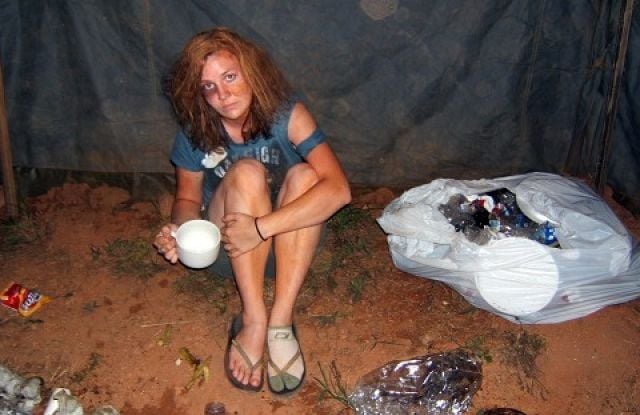The space between Christmas and New Years is a good time to take stock. It’s a good time to think about how you want to grow next year. Most of us want to grow, but sometimes we get stuck trying to make the cost/benefit calculation. If you’re like me, you want to know the pain required is worth i…
By Seth Barnes
The space between Christmas and New Years is a good time to take stock. It’s a good time to think about how you want to grow next year. Most of us want to grow, but sometimes we get stuck trying to make the cost/benefit calculation. If you’re like me, you want to know the pain required is worth it, right?
We can’t escape the fact that we need pain to grow. Because our bodies routinely suffer bumps, bruises and cuts, we need a properly functioning nervous system to activate the healing process of the immune system.
Leprosy is an especially deadly disease because it impairs a person’s nervous system. Without feeling pain, small infections go untended and become worse. Pain is not the enemy – it is necessary if the body is to return to its normal, healthy state. Pain is the body’s signal that something is amiss that needs attention. You feel the heat of a flame and pull back to avoid being burned.
In the realm of emotions and the relationships that prompt them, we experience pain and we speak of hurt feelings. Damage a person’s sense of significance and the pain is a signal to do something – fight or flight.
When parents or other family members routinely wound a child whose sense of self is in process, she will develop coping mechanisms. It becomes “normal” for her to retreat to a fantasy world. She may begin to believe lies, confusing them with truth.
Because few families are healthy, most people have areas in their lives where they were unable to process pain in a normal way. We may see the symptoms of passive-aggressive behavior, defensiveness, or neurosis.
Underlying these symptoms, however, are places where pain didn’t lead to healing, but to permanent brokenness, a walling off or estrangement from oneself.
When Jesus came to set the captives free, to bring abundant life, this was one of his primary ministries. When he proclaimed us, his followers, to be ministers of reconciliation, he was referring to these issues. He wants us to feel again, to experience the healthy pain that helps us to live normal lives.
It can be confusing if we want to help heal. We may want to deliver a person from pain when what they really need is to return to that broken place where they weren’t able to process pain, but had to cope in dysfunctional ways.
When we help a person return to that place of brokenness, they will usually feel the pain that they originally shut down. They will feel broken because they were broken. But this place of brokenness can be a place of healing if the coping mechanisms are identified and corrected.
We call this process of appropriately dealing with emotional pain “grieving.” Grieving allows us to look at reality. We can come out of hiding. Things didn’t happen as they should have. Abusive behavior resulted in wounding and dysfunction.
Yes, Jesus is interested in setting us free. But it will often require that we feel pain along the way. And the good news is that on the other side of pain is the freedom we long for.
Think about your own life. Are there painful events that you’ve chosen not to think about? How have you processed the pain in your life? It’s a good time to choose to press into the pain so that you can live in greater freedom and grow again. I pray that you do.




Thanks, Judith. I need to get this book.
Pain… Ouch! None of us want it, but we do learn, grow, and develop more into what and who God wants us to be.
Most of us who have been in ministry leadership have suffered some major setbacks, disappointments and deep heartaches, but Jesus has used these in our lives.
“Oh Lord, for those out there right now who are experiencing heartaches, please come and minister to them. Reach down and hold their hand and put your loving arms around them. Might they feel you right now…”
A good resource, Seth, is the book Pain: The Gift Nobody Wants by Dr. Paul Brand and Philip Yancey, published in the 90’s.
“This volume presents Brand’s discourse on pain in the form of his memoirs, for he “learned about pain not systematically, but experientially.” Son of British missionaries to India, young Brand observed the native population’s resolute acceptance and bearing of pain. It was the absence of pain in his leprosy patients, observed over 50 years of pioneering medical practice and research in India and the United States, that taught Brand pain’s value. For to live without pain, he concluded, is to live in constant peril of unchecked injury and illness.”
This book ministered to me at a time when I had a lot of questions about the pain in my life: what its purpose was and why God had allowed it.
Love,
Judith
Yeah- that book is worth getting.